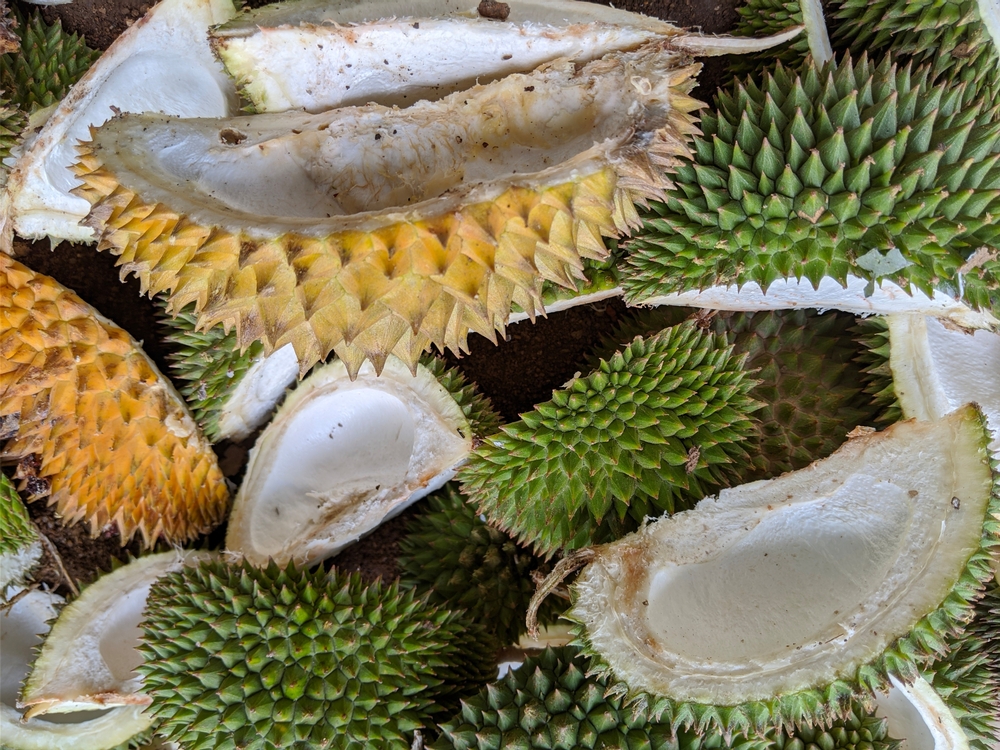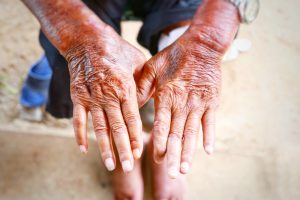As durian season approaches and dengue cases rise, researchers have discovered an alarming link between the two.
The improper disposal of durian skin can lead to increased dengue cases, as the concave surface can collect water and become a mosquito breeding ground. Penang state environment and welfare committee chairman Phee Boon Poh highlighted the issue, urging for proper disposal methods to avoid further health risks.
“The problem arises when the skin is not properly disposed of, as it can become a mosquito breeding ground due to its concave surface,” he said.
“It can collect water when there is rain and mosquitoes breed in clear stagnant water. This can lead to a higher number of dengue cases.”
Proposed Solutions
To address this problem, Phee proposed that the Penang Island City Council and Seberang Prai City Council impose a condition on stall operators to properly dispose of durian skin before issuing temporary licenses.
Additionally, he suggested that the state Agriculture Department establish a shredding facility in durian orchards. By shredding the durian skin, we can convert it into compost, promoting a circular process that makes use of all resources.
“It is up to them whether they (the department) want to install it or the orchard owner does so.”
The Problem as The Solution
In a separate research, a study found that durian skin contains essential oil, flavonoid, saponin, cellulose, lignin, and 11 starch content, which can be used as a larvicide against Aedes aegypti larvae, the primary vector for dengue fever.
The study aimed to analyze the LC50 of durian rind extract on the mortality of Aedes aegypti larvae. Using an experimental method, researchers divided 440 third-instar stage Aedes aegypti larvae into 12 groups. It also included negative and positive controls. Additionally, it exposed durian rind extract concentrations ranging from 1% to 10%.
The results showed that a durian rind extract concentration of 7.76% could kill 50% of the larvae (LC50). This finding suggests that durian rind extract has a significant impact on the mortality of Aedes aegypti larvae. This may offer a potential solution for reducing the spread of dengue fever.
Medical Perspective
From a medical standpoint, dengue fever is a mosquito-borne illness that can cause severe flu-like symptoms. According to data, the number of dengue fever cases reported from April 9 to 15 increased by 2.6% to 2,399. With durian season and the inter-monsoon period coinciding, there is a higher risk of dengue cases increasing due to the proliferation of mosquito breeding grounds.
Prevention is Key
Understanding the connection between durian season and dengue cases is crucial in implementing preventive measures. By ensuring proper disposal of durian skin and raising awareness of the issue, communities can work together to reduce the impact of dengue fever in the region. Also, could the data help to create a solution to this problem?













